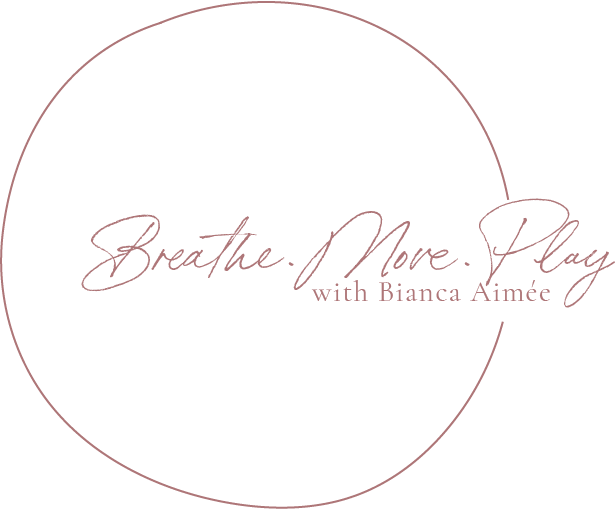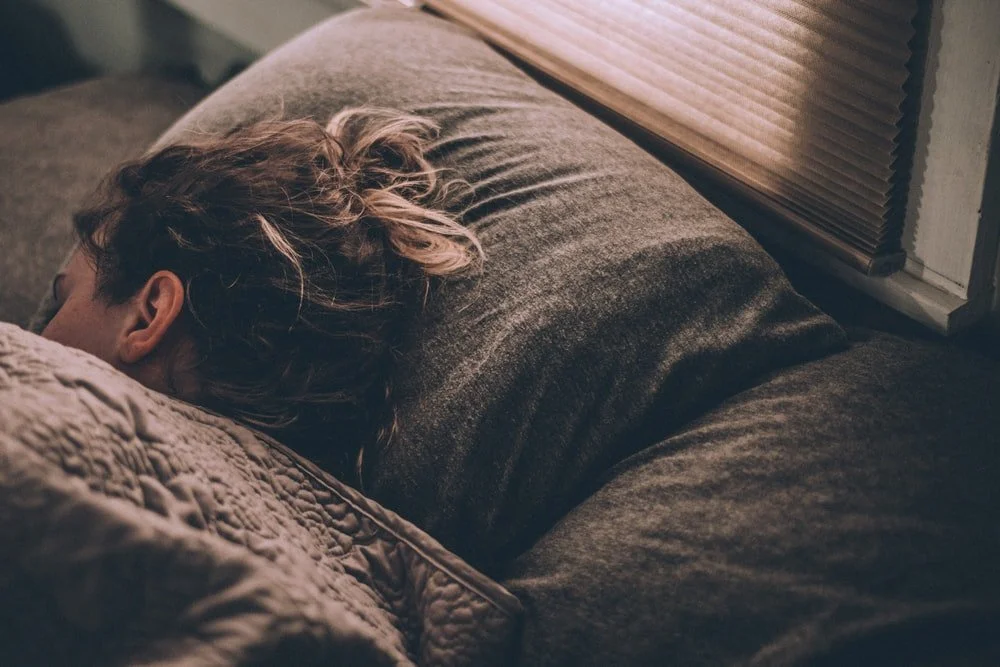Sleep is often overlooked and undervalued. So many of us are intentional and mindful about what we eat and how we train, ensuring we take care of our physical and mental health; however, we often overlook the crucial factor of getting enough sleep. When we are sleep impaired, we cannot function properly. Sleep is when our body heals and recharges, both physically and emotionally.
When we sleep the body releases certain hormones that assist with mood regulation, the way in which our bodies recover and repair, and even the way our appetite functions. A healthy amount of sleep allows for a balanced amount of hormones to work through the body. This leads to a healthy appetite, body and mind. In contrast, when we lack sleep the body releases high amounts of cortisol - the stress hormone - which can lead to insulin resistance, hunger and anxiety.
Sleep is fundamental to our overall well-being, and getting enough of it is an essential aspect that so many people are disregarding. Sleep scientist Dr Matthew Walker describes the lack of sleep to be a global healthcare epidemic, stating that “human beings deliberately deprive themselves of sleep for no apparent gain” and “have stigmatized sleep as a label of laziness”.
Cycling through the night
Over the course of our sleep, we go through various rounds of the sleep cycle. We generally go through four to six rounds of this cycle each night, and the duration of each cycle varies and changes throughout. Sleep cycles differ for each person, and vary from night to night, as our sleep is influenced by factors such as stress, age, alcohol consumption and our sleep patterns (link this sentence to this page: https://wernfitness.com/articles/to-drink-or-not-to-drink-that-is-the-question/).
The sleep cycle is categorised into two types of sleep - Non-Rapid Eye Movement (non-REM) and Rapid Eye Movement (REM). These two categories are then divided into four stages:
Stage one: non-REM
Stage one is the changeover from wakefulness to sleep. During this short period of light sleep - approximately one to five minutes - our heartbeat, breathing, and eye movement slow down. Our muscles relax and our brain waves begin to wind down from their daytime patterns.
Stage two: non-REM
Stage two is a short period of light sleep before we begin to enter a deeper sleep. Our heartbeat and breathing slow down, and our muscles relax, even more than stage one. Our body temperature drops and all eye movement stops. Our brain wave activity slows down, however there are still brief bursts of electrical activity in the brain. We spend more of our repeated sleep cycles in stage two than in other sleep stages. The initial cycle of stage two lasts around 25 minutes, and then it increases with each consecutive cycle, eventually making up approximately 50% of our total sleep.
Stage three: non-REM
Stage three is the period of deep sleep that we need to feel refreshed in the morning. It occurs in longer periods during the first half of the night, bringing our brain waves, breathing and heart rate down to their lowest levels. Our muscles are relaxed, and it becomes more difficult to be woken up.
Stage four: REM
REM sleep first occurs about 90 minutes after falling asleep. Our eyes move rapidly from side to side behind the closed eyelids. The mixed frequency brain wave activity we experience in REM are similar to those when we are awake. Our breathing becomes faster and irregular, and our heart rate and blood pressure increase to near waking levels. Most of our dreaming occurs during REM, although some dreams can also take place during non-REM. Our arm and leg muscles become temporarily paralysed, which prevents us from acting out our dreams. It is thought that as we age we spend less time in REM sleep.
When we do not allow ourselves to get enough sleep, we may not access certain stages which are required to assist with particular body and mind processing. It is argued that we should not have anything less than eight hours of sleep every night, however many of us are living on less than six hours. Dr Matthew Walker explains that there are objective impairments in the body when we have less than eight hours of sleep. Such a lack of sleep puts us at risk of developing a heart attack, stroke, alzheimers, cancer and depression.
So, how much sleep do we really need?
Most recommendations state that we should get approximately seven to nine hours sleep each night. It is said that we lose our cognitive abilities if we only get seven hours sleep, or less. It is therefore crucial to get eight hours sleep every night if we want to feel fresh, be aware, and to be able to perform to our full potential every day.
Life does get busy, and we have things to do. We have all had those nights where we plan to go to bed at a certain time, and then an hour later we are still on our laptops, or at that work dinner...
How do we manage our sleep?
When we commit to planning our evenings, we can then manage our time to ensure we get in our eight hours. It comes down to prioritising our sleep, and taking small steps so we have get the necessary time to rest:
1. Limit screen time
Screen time can negatively impact our sleep and reduce the duration and quality of sleep. By switching off all devices for an hour before bedtime, we limit the negative impacts of screen time on our sleep.
2. Keep it cool
Our brain and body need our body temperature to drop by two to three degrees in order to fall to sleep. As evening approaches this temperature change starts to naturally occur . However, during the heat of summer, finding that drop in temperature may feel almost impossible. In order to get a good night’s sleep try keep the room well ventilated, have a fan nearby, or even take a cold shower before bed.
3. Dim the lights
Since the invention of the light bulb our sleep patterns have been taking a hit, and over time we have become a dark deprived society. For us to time our sleep effectively, a hormone known as melatonin - the vampire hormone - needs to be released. Melatonin works by encouraging our body to sleep and organising the assortment of different chemicals in our body, which work together to prepare us for sleep. Blue lights are especially triggering to our Melatonin levels and lead to our bodies staying awake. Studies have shown that reading from an tablet or phone in bed can disrupt our sleep by up to three hours, and prevent REM sleep from occurring, leaving us feeling exhausted the next day. Darkness is fundamental to the release of Melatonin. For a good night sleep, avoid looking at your phone or tablet well before bed, and gradually start to turn off the lights around the house, mimicking the natural onset of darkness.
4. Reduce that caffeine
Caffeine makes us more alert, and some of us even feel that we function more effectively after having that cup of coffee. The problem lies with the amount of time caffeine stays within the body. Caffeine has a half-life of six hours, meaning that if you consume a cup of coffee at 18h00 you will still feel half of the effects by midnight. Caffeine also has a quarter life of twelve hours, which means that one cup of coffee could prevent you from sleeping well into the early hours of the morning. If a cup of coffee is part of your afternoon routine it could be reducing the amount of deep sleep you get by 25% each night. If you feel you need caffeine to wake you up in the morning, then you are likely not getting enough sleep in the first place. If caffeine is something you enjoy and do not want to remove from your lifestyle, the best time to consume caffeine is in the morning, cutting off your caffeine consumption after around three hours of waking.
5. Be mindful, slow down and breathe
In the fast paced, busy world we live in we are often over-stimulated, having a automatic physiological fight or flight response to stressful situations. Many of us get into bed and have thoughts running through our minds about things we need to get done, work, plans, or a problem that we need to solve. This overthinking has a negative effect on our stress levels, and our body and mind’s ability to calm, and peacefully fall asleep. Meditation calms the mind as it activates the parasympathetic nervous system, allowing the body to “rest and digest”. By practicing a short meditation before bed we can focus on our breathing, bringing our attention to the present moment, without drifting off into worries about the past, or future.
6. Set your internal body clock
Our bodies work with memory and patterns. When we train the body we work on strengthening our muscles, and overtime our body builds muscle memory. When we do an activity over and over again our mind and body become familiar with these routines, and we become better at the task. This is the same with sleep. By maintaining a regular sleep pattern, you will naturally fall asleep more easily when you get into bed, and wake up with ease in the morning, tuning in to your natural body clock. Try go to sleep around the same time each night, and wake up at the same each day to help your body get into a routine that allows for eight hours of rest.
Plan and monitor
Sleep is a priority. The more educated and informed we become about sleep - and why it is so crucial - the more aware we are. This develops our understanding, and allows us to become more connected to our bodies. To assist with this, we can monitor our sleep patterns, sleep stages and the duration of these using a variety of apps available such as Sleep Cycle, Sleep as Andriod and Sleepa. These apps connect to our devices, they remind us when to go to bed and track how long we spent throughout the night in the various stages of sleep.
To nap, or not to nap?
There are different perceptions about taking naps. Some say an hour nap during the day makes them feel more groggy and tired when they wake up, whilst others find it to be a useful way to reboot when they are tired.
Most of us are programmed to sleep for one single period throughout the night. However, there are some nomadic tribes who have what is known as “biphasic sleep”. Interestingly they have six to seven hours of sleep during their first phase of sleep, and then catch up on the remaining sleep during an afternoon nap.
Again, it all comes down to you, and your unique body and mind. Do what works for you, however remember that when we nap our body does not get to REM, thus you do not necessarily access that deep sleep, which is a crucial part of the sleep cycle.
So, get your sleep!
Get at least eight hours sleep every night so that your mind and body can rest and heal, and you can be energised and strong every day. Keep track of how many hours you sleep each day, and if you lose an hour, ensure you make it up, getting your 56 hours over the course of the week.
And remember, “when sleep is abundant, minds flourish. When it is deficient, they don't.” - Dr Matthew Walker

